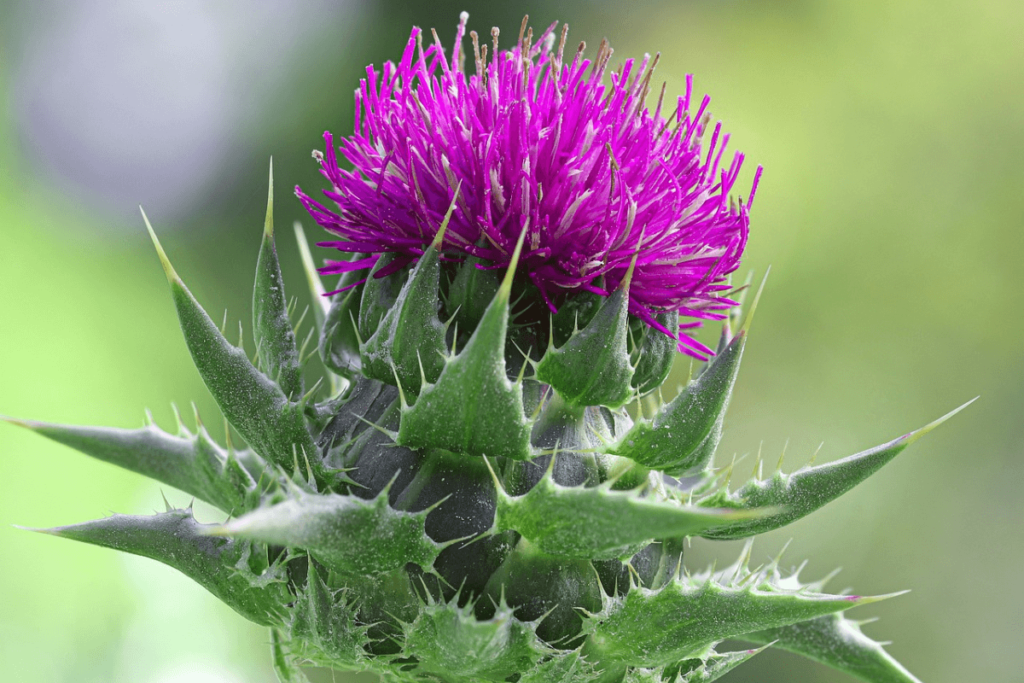TheHerbProf.com is a treasure trove of knowledge for those interested in natural healing and herbal remedies. The website is run by Paul Johnston MD. A naturopathic who has not only received extensive education in the field but also has personal experience in self-healing.
I am glad you are interested in the herbal medicine biomolecular and clinical aspects. 2nd edition. A book that covers the latest scientific and clinical evidence of the effects of selected herbs on human health. In this blog post, I will give you an overview of the book, its main topics, and its benefits for anyone who wants to learn more about herbal medicine. Let’s get started!
Herbal Medicine Biomolecular And Clinical Aspects. 2nd Edition – Get The Book Here
Herbal medicine is the use of plants or plant extracts to treat or prevent various diseases and conditions. It is one of the oldest and most widely used forms of medicine in the world, with a rich history and culture across different regions and civilizations. Herbal medicine is also a popular alternative or complementary therapy for many people who seek natural and holistic ways to improve their health and well-being.
However, herbal medicine is not just based on tradition or anecdotal evidence. It is also supported by scientific research and clinical trials that aim to understand the molecular mechanisms and biological activities of herbs and their constituents. This is where the book: herbal medicine biomolecular and clinical aspects. 2nd edition comes in.
Get Herbal Medicine Biomolecular And Clinical Aspects. 2nd Edition Here
This book is the 2nd edition of a comprehensive volume that focuses on presenting current scientific evidence of the biomolecular effects of selected herbs and their relation to clinical outcomes and the promotion of human health. It includes experimental approaches for looking at the bioactive components in herbs, as well as the ethical challenges of using herbal medicine and its integration into modern, evidence-based medicine.
The book is edited by Iris F. F. Benzie and Sissi Wachtel-Galor, two leading experts in the field of herbal medicine and oxidative stress. It features contributions from international researchers from different disciplines, such as pharmacology, biochemistry, molecular biology, immunology, dermatology, neurology, oncology, cardiology, and endocrinology.
The book contains 28 chapters that cover a wide range of topics, such as:
- The history and global perspectives of herbal medicine
- The quality control and safety issues of herbal products
- The antioxidant properties and oxidative stress modulation of herbs and spices
- The effects of individual herbs on important diseases such as cancer, cardiovascular disease, dermatologic disorders, neurodegenerative disease, and diabetes
- The use of mass spectrometry and chemometric fingerprinting for identification and authentication of herbs
The book is intended for medical professionals and researchers who want to learn more about the scientific basis and clinical applications of herbal medicine. It is also suitable for students, educators, practitioners, and general readers who are interested in herbal or complementary medicine.
Scientific Evidence and Clinical Outcomes
One of the main goals of the book is to present current scientific evidence of biomolecular effects of selected herbs and their relation to clinical outcome and promotion of human health. This means that the book does not just describe the traditional uses or anecdotal reports of herbs, but also provides rigorous scientific data and analysis that support their efficacy and safety.
The book covers some of the most widely used herbs in different regions and cultures, such as:
- Ginseng
- Ginkgo
- Garlic
- Turmeric
- Ginger
- Green tea
- Echinacea
- St. John’s wort
- Milk thistle
- Aloe vera
For each herb, the book provides information on its botanical characteristics, chemical constituents, pharmacological actions, molecular mechanisms, clinical trials, adverse effects, interactions, and dosage recommendations. The book also discusses the potential benefits or risks of using these herbs for various health conditions or populations.

Herbal Medicine Biomolecular And Clinical Aspects. 2nd Edition – Get Here
For example, ginseng is one of the most popular herbs in Asia and has been used for centuries as a tonic or adaptogen to enhance physical and mental performance. The book reviews the evidence that ginseng can modulate immune function, glucose metabolism, cardiovascular function, cognitive function, sexual function, stress response, and aging process. The book also addresses the issues of quality control, safety assessment, drug interactions, and optimal dosage of ginseng.
Another example is St. John’s wort, which is widely used in Europe and North America as a natural antidepressant. The book explores the evidence that St. John’s wort can affect serotonin metabolism, neurogenesis, neuroprotection, inflammation, oxidative stress, circadian rhythm, and gene expression in the brain. The Herbal Medicine Biomolecular And Clinical Aspects. 2nd Edition also examines the clinical trials that compare St. John’s wort with conventional antidepressants or placebo for treating mild to moderate depression. The book also warns about the potential side effects or interactions of St. John’s wort with other drugs or supplements.
By providing scientific evidence and clinical outcomes for selected herbs, the book aims to bridge the gap between traditional knowledge and modern research on herbal medicine. It also hopes to inspire further studies and collaborations among researchers from different fields to advance our understanding of herbal medicine.
Latest Updates and Developments in Herbal Medicine
Another goal of the book is to provide latest updates and developments in herbal medicine research. This means that the book does not just repeat or summarize existing information or studies on herbs, but also introduces new findings and perspectives that expand our knowledge and challenge our assumptions.
The book covers some of the latest topics and trends in herbal medicine research, such as:
- The exploration of the medical attributes of St. John’s wort, which was previously known only for its antidepressant effects, but now has been shown to have anticancer, antiviral, anti-inflammatory, and neuroprotective properties.
- The discovery of new bioactive compounds or mechanisms in herbs, such as the flavonoids in green tea that can modulate epigenetic regulation, or the terpenoids in ginkgo that can activate nuclear receptors.
- The development of new technologies or methods for studying herbs, such as the use of mass spectrometry and chemometric fingerprinting for identification and authentication of herbs, or the use of metabolomics and proteomics for profiling the metabolic and proteomic changes induced by herbs.
- The integration of herbal medicine with modern medicine, such as the use of herbal extracts or compounds as adjuvants or sensitizers for chemotherapy or radiotherapy, or the use of herbal formulas or combinations as synergistic or complementary therapies for various diseases.
By providing latest updates and developments in herbal medicine research, the book aims to reflect the dynamic and evolving nature of herbal medicine. It also hopes to stimulate further innovation and exploration in herbal medicine research.
Benefits of Herbal Medicine – Get The Book Here!
The final goal of the book is to highlight the benefits of herbal medicine for human health and well-being. This means that the book does not just focus on the scientific or clinical aspects of herbs, but also on the holistic or humanistic aspects of herbs.
The book covers some of the benefits of herbal medicine, such as:
- Improved health outcomes: Herbal medicine can help prevent, treat, or manage various diseases and conditions, such as cancer, cardiovascular disease, diabetes, depression, anxiety, insomnia, pain, inflammation, infection, and more. Herbal medicine can also help improve immune function, metabolic function, cognitive function, sexual function, stress response, and aging process.
- Reduced side effects: Herbal medicine can have fewer or milder side effects than conventional medication, especially when used properly and appropriately. Herbal medicine can also help reduce the toxicity or adverse effects of conventional medication, especially when used as adjuvants or synergists.
- Enhanced quality of life: Herbal medicine can help enhance the quality of life of people who suffer from chronic or terminal illnesses, by providing relief from symptoms, improving mood and energy levels, and supporting spiritual and emotional well-being. Herbal medicine can also help enhance the quality of life of healthy people, by promoting wellness and prevention, improving lifestyle and habits, and fostering a connection with nature and culture.
By highlighting the benefits of herbal medicine for human health and well-being, the book aims to demonstrate the value and potential of herbal medicine. It also hopes to encourage more people to use herbal medicine as a way to improve their health and well-being.
Before You Go – Get The Book Here
Herbal Medicine: Biomolecular and Clinical Aspects is a book that provides a comprehensive overview of the scientific evidence and clinical outcomes of selected herbs and their relation to human health. It also provides latest updates and developments in herbal medicine research. It also highlights the benefits of herbal medicine for human health and well-being.
This book is a must-read for anyone who wants to learn more about herbal medicine. Whether you are a medical professional or researcher who wants to expand your knowledge and skills in herbal medicine. Or a student or educator who wants to enrich your curriculum or teaching on herbal medicine. Or a practitioner or consumer who wants to enhance your practice or experience with herbal medicine. This book will provide you with valuable information and insights that will help you appreciate and utilize herbal medicine better.
If you are interested in buying this book, you can order it online from Amazon.
Herbal Medicine Biomolecular Book and The Herb Prof: A Scientific Synergy
Herbal Medicine Biomolecular Book is a fascinating read, isn’t it? But how does it connect with The Herb Prof? Let’s find out!
The Science of The Herb Prof
The Herb Prof is your herbal science tutor. It’s packed with information that complements the biomolecular aspects of herbal medicine. It’s like having a scientist and a herbalist in one place!
The Book of Herbal Wonders
The Herbal Medicine Biomolecular Book is a scientific exploration of herbs. It delves into the biomolecular mechanisms of herbal remedies. And guess what? You can find related content on The Herb Prof!
A Scientific Herbal Community
The Herb Prof and the Herbal Medicine Biomolecular Book together create a scientific herbal community. It’s a place where science meets nature, and biomolecules meet botanicals.
So, if you’re a fan of science or just curious about herbal medicine, remember – The Herb Prof is your gateway to the world of herbs. Happy exploring!
References – Herbal Medicine Biomolecular And Clinical Aspects. 2nd Edition
Little Herb Encyclopedia, by Jack Ritchason; N.D., Woodland Publishing Incorporated, 1995
The Ultimate Healing System, Course Manual, Copyright 1985, Don Lepore
Planetary Herbology, Michael Tierra, C.A., N.D., Lotus Press, 1988
Handbook of Medicinal Herbs, by James A. Duke, Pub. CRP Second Edition 2007
The Complete Medicinal Herbal, by Penelope Ody, Published by Dorling Kindersley
Check the Following Articles!
Home Remedies Fever And Headache: Feel Better Faster!
Herbal Medicine GMP (Good Manufacturing Practice)


